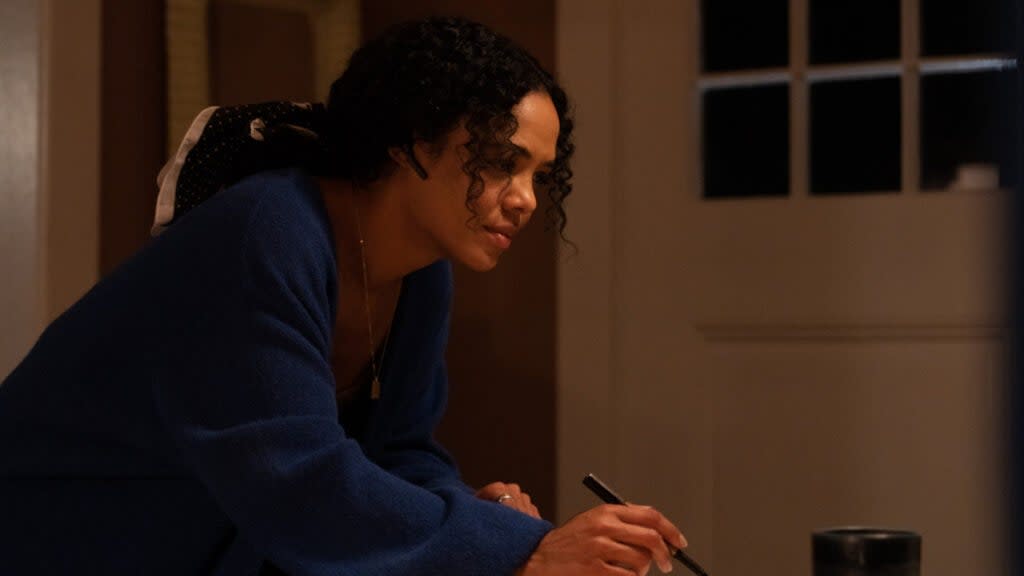‘The Listener’ Review: Tessa Thompson Anchors Contemplative Story of Loneliness

- Oops!Something went wrong.Please try again later.
Looking over actor-director Steve Buscemi’s film directorial work, the theme of loneliness and the hunger for connection jumps out of nearly all of them. His latest feature, “The Listener,” feels closer to his 2005 feature “Lonesome Jim,” itself a story about a depressed man trying to imbue meaning in his life by connecting with someone else.
In the case of “The Listener,” though, that connection is more anonymous, reminding us of the bad early days of the pandemic when we were so afraid that we might never interact with another human that any type of communication, even through the phone, felt like a lifeline.
But what happens when your job is to take on everyone else’s emotional energy? Where does that leave you when you need an outlet but you can only project positivity and reassurance? These are the questions at the center of “The Listener.”
Also Read:
Tessa Thompson and Joseph Gordon-Levitt to Star in Sci-Fi Thriller ‘Ash’ for Director Flying Lotus
We meet Beth (Tessa Thompson) as she’s prepping for another night shift manning a telephone helpline. It’s never definitively stated what this specific helpline is centered around — the people who call are struggling but suicidal ideation only happens here and there — but it’s clear those that call in are seeking someone to listen to them. And Beth, who seems to lead a quiet life, is eager to provide that sympathetic ear.
Thompson sets the tone for the entirety of the movie. In fact, she’s the only face we see throughout the film’s 96-minutes, and if she waffles as Beth for just an instant, the entire movie would fail. But with Thompson’s soothing voice and cinematographer Anka Malatynska’s camera tracking her, Beth becomes a warm beacon of light for everyone to gravitate toward.
The film plays a lot like a podcast or even a radio drama, with Beth fielding calls and having various interactions with those who call her. Some interactions are brief — breathing or an immediate hangup — while others change on a dime. A man who calls in and describes disturbing misogynistic behavior before trying to convince Beth to have phone sex. When she refuses, he curses her out and hangs up. What’s jarring to the audience simply sweeps over Thompson’s face; she’s used to situations like this.
But what the film does so skillfully is allow Thompson to show us how every call affects her. As the night wears on, she engages in changes, whether to her sitting position, the bits of business she engages in, even leaving her house at one point to illustrate how doing this job emotionally eats her up. You hear the weariness in Thompson’s voice as the movie progresses.
She worries about what happens to the people who hang up the phone. One woman, who discloses to Beth that she’s unhoused and has an abusive boyfriend, abruptly hangs up when said boyfriend returns. Will she be harmed? Beth doesn’t know and the not knowing if she’s effective in these people’s lives is a lot to live with.
What Buscemi and screenwriter Alessandro Camon craft with “The Listener” feels like a throwback to the features of the 1970s. It’s a character study, a moody atmospheric piece of contemplation with one character who, through interacting with others, unseen, on the phone comes away with a grander understanding of self. We, as the audience, come away with a grander understanding of our own interactions and how life changes without us ever knowing about it.
Also Read:
Tribeca Festival 2023: See the Star-Studded Red Carpet Arrivals (Photos)

